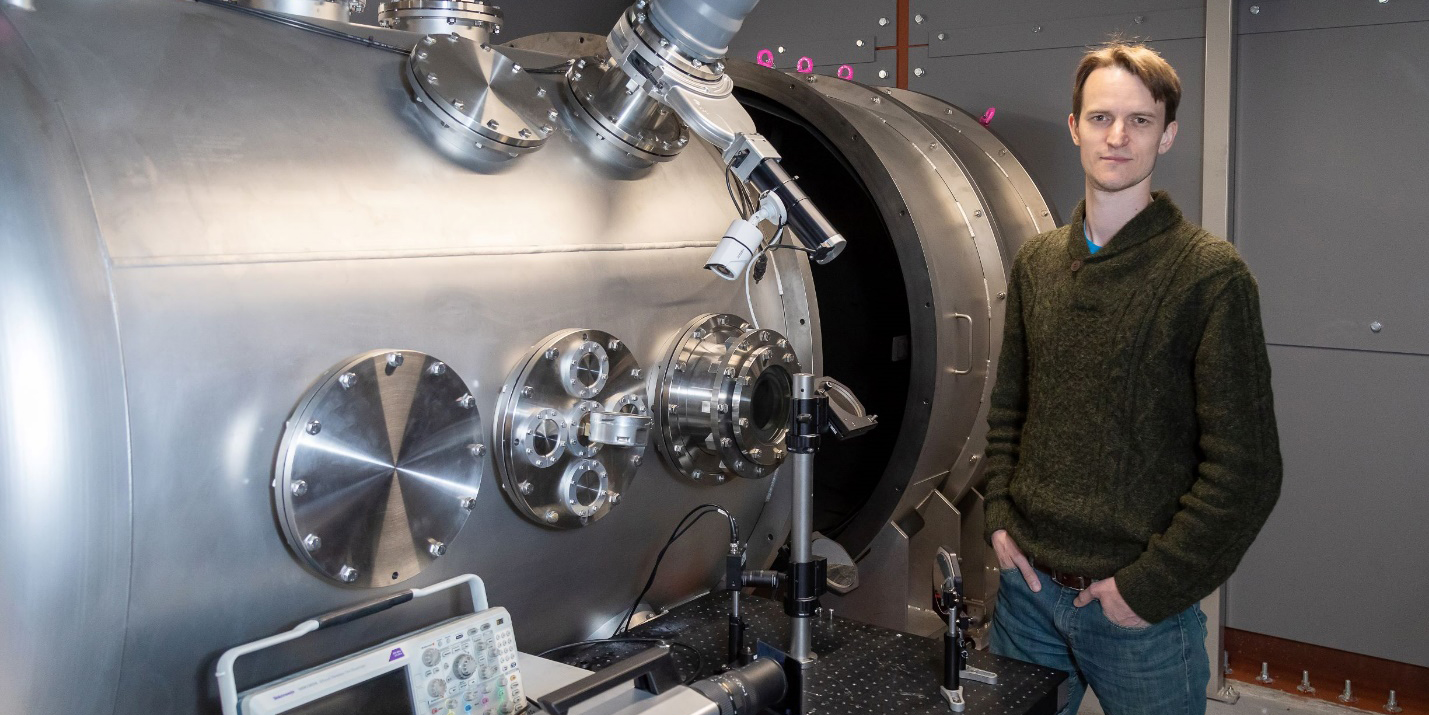Video still showing samples of red trinitite. (Source: University of Florence)
The world’s first atomic bomb test—code-named Trinity and conducted in New Mexico on July 16, 1945—had an unintended outcome that was only recently discovered.
SHINE executives, construction managers, and partners commemorate a construction milestone of the medical isotope production facility in March. (Photo: SHINE)
The Nuclear Regulatory Commission has approved a request by SHINE Medical Technologies for an exemption from regulations on how commercial grade equipment is defined, allowing the company to more easily procure components for the medical isotope production facility it is building in Janesville, Wis.
Source: GlobalData Power Intelligence Center
Nuclear power will remain the dominant source of electricity generation in Bulgaria until 2030, despite the national government’s plans to add a substantial amount of renewable capacity this decade, says GlobalData, a U.K.-based data and analytics company. (According to a national strategy blueprint published on the Bulgarian parliament’s website last year, the country is targeting an additional 2,645 MW of installed capacity from renewable sources by the end of 2030.)
The Crab nebula, an iconic Milky Way supernova remnant, as viewed by the Herschel Space Observatory and the Hubble Space Telescope. (Image: NASA, ESA, and Allison Loll/Jeff Hester, Arizona State University)
Traces of freshly made plutonium and radioactive iron recovered from the bottom of the Pacific Ocean are contributing to an understanding of how heavier elements are created from exploding stars and other cosmic events, according to a National Public Radio report.
First Light Fusion CEO Nick Hawker stands near the target end of the 22-meter-long gas gun. (Photo: First Light)
Inside a new steel-clad facility nicknamed “The Citadel,” First Light Fusion has installed a 22-meter two-stage gas gun—the third-largest such component in Europe.
“Big Carl,” the world’s largest land-based crane, lifts the second of three prefabricated steel rings that will form the reinforced cylinder around the nuclear reactor at Hinkley Point C from its bunker to a lay-down area in late April. (Photo: EDF)
EDF has signed a new membership agreement with the United Kingdom’s Nuclear Advanced Manufacturing Research Centre (AMRC) to drive innovation in low-carbon power generation and support U.K. manufacturers, the University of Sheffield–based center announced recently.
New York’s Indian Point-3 was scheduled to close in April 2021.
At present, more than 20 commercial nuclear power plants in the United States have entered the decommissioning process, and many indicators point to a coming wave of additional plant closures. Indeed, with increasing numbers of plants terminating operations due to unfavorable market conditions, some voices have deemed this the “age of decommissioning.”
Regardless of whether a plant shuts its doors earlier than anticipated or seeks a life extension through relicensing, all plants eventually close. When they do, the closure sets off a wave of economic impacts ranging from minor disruptions to severe and long-lasting harm.
The demonstration program aims to accelerate innovation and deployment of energy concepts at the intersection of industry needs, NRIC’s mission, and the R&D portfolio of CTD IES. (Graphic: BEA)
The National Reactor Innovation Center (NRIC) wants to hear from developers and end users interested in integrated energy systems for advanced reactors. Battelle Energy Alliance (BEA), the managing and operating contractor for Idaho National Laboratory, has issued a call for Expressions of Interest for a potential multi-phase demonstration program for innovative uses of nuclear energy, to be carried out by NRIC and the Crosscutting Technology Development Integrated Energy Systems (CTD IES) program. The final date for responses is May 21.


 A highly anticipated report released yesterday by the International Energy Agency on how to transition the world to a net-zero energy system by 2050 calls for “nothing less than a complete transformation of how we produce, transport, and consume energy.” At the same time, the report,
A highly anticipated report released yesterday by the International Energy Agency on how to transition the world to a net-zero energy system by 2050 calls for “nothing less than a complete transformation of how we produce, transport, and consume energy.” At the same time, the report, 
 Among the 12 energy-mix scenarios analyzed in
Among the 12 energy-mix scenarios analyzed in 

















